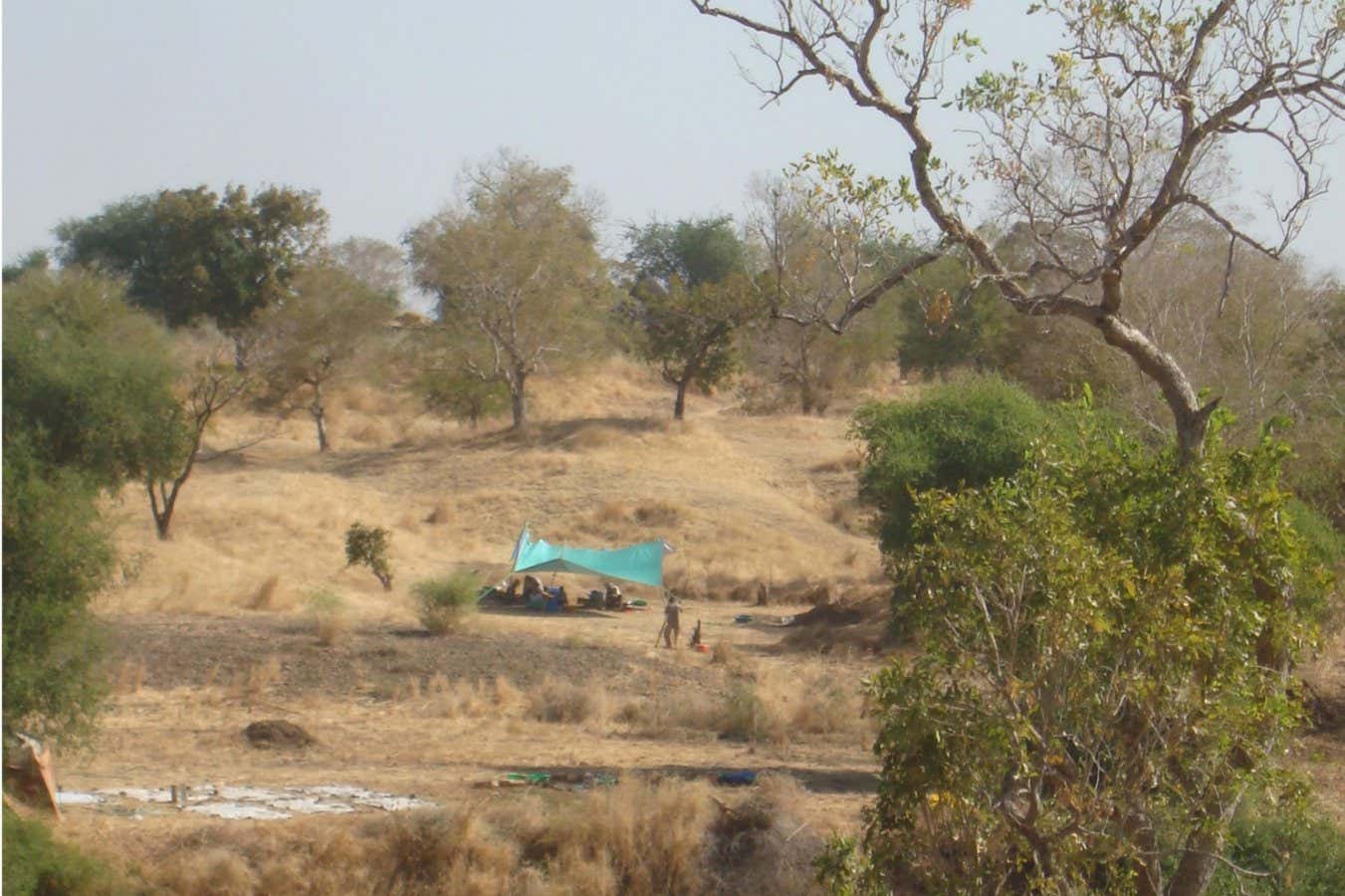Evidence from an archaeological site in Ethiopia suggests ancient humans adapted their diet during a dry spell after the Toba volcano eruption 74,000 years ago
By Michael Le Page
20 March 2024
An archaeological site in the lowlands of Ethiopia where ancient humans lived 74,000 years ago
John Kappelman
An campsite in what is now Ethiopia may have been used for a few years before, during and after a huge volcanic eruption 74,000 years ago that altered Earth’s climate.
The eruption of Toba, a supervolcano on the Indonesian island of Sumatra, was the biggest eruption on Earth in the past 2 million years. Some researchers think it caused a volcanic winter that lasted several years and might have wiped out most humans alive at the time, but the magnitude of its impact is disputed.
Read more
Human evolution: The astounding new story of the origin of our species
Advertisement
Bones found at a site in Ethiopia suggest that the people living there had to adapt their diet to survive during a drier year or two after the eruption, but the impact appears to have been mild.
“It was a pretty lucky find,” says John Kappelman at the University of Texas at Austin, whose team discovered the site in 2002. “There is no question about it.”
Most early human sites are caves that were occupied for tens of thousands of years, he says. But this camp is an open-air site near the Shinfa river, a tributary of the Blue Nile. “Our hunch is that this site was occupied for maybe five to 10 years, something like that,” says Kappelman.
